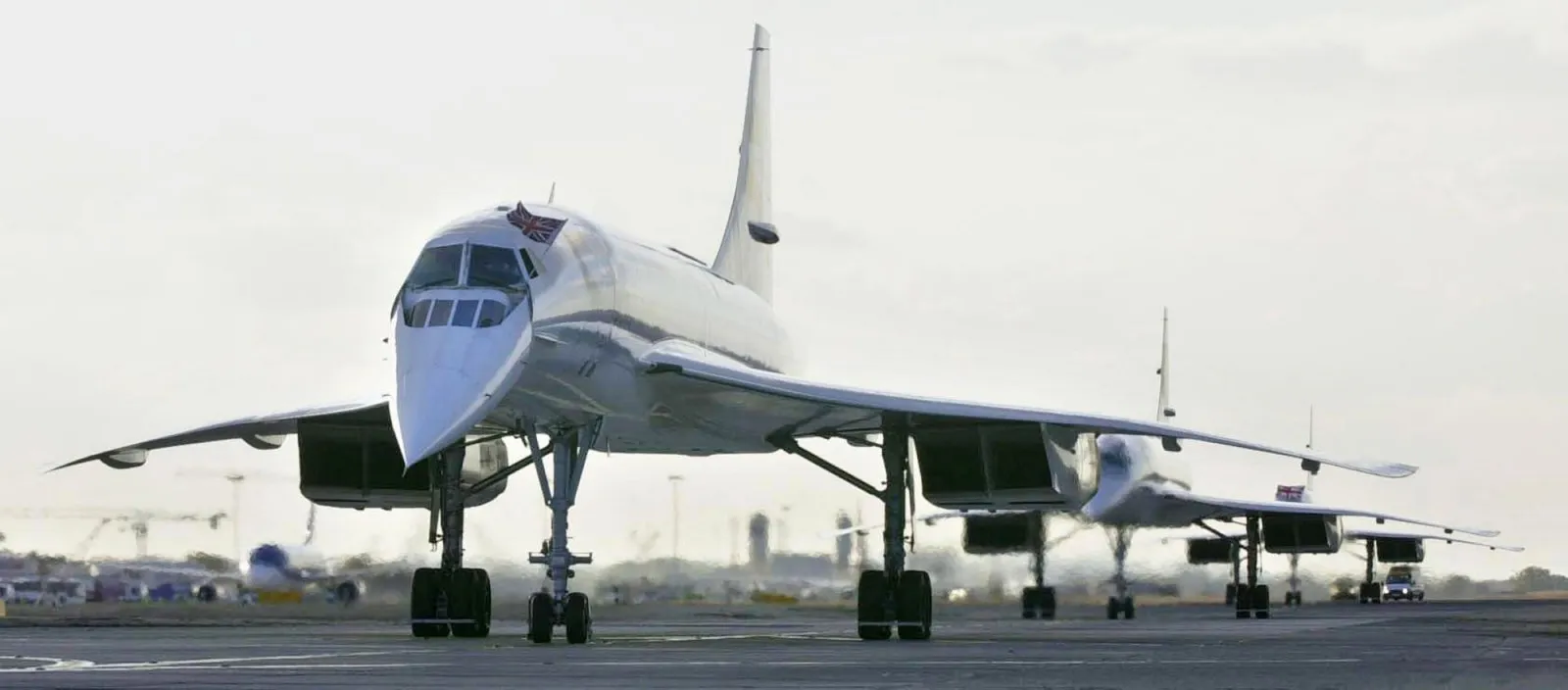
Concorde decision was the right one, says former BA boss.
Oct 22, 2018

The former British Airways chief has affirmed that the decision to retire the Concorde was justified, citing economic and operational challenges. Although the iconic supersonic jet symbolized luxury and speed, its maintenance costs and dwindling passenger numbers made it increasingly unsustainable. The shifting dynamics of the aviation market, coupled with growing environmental concerns, further reinforced the necessity to phase out the aircraft. The former executive emphasized that while Concorde was an engineering marvel, prioritizing financial viability and aligning with modern environmental standards ultimately guided the decision, ensuring the airline's long-term success and adaptability in a competitive industry.
The Concorde, once a marvel of aviation engineering, has been a topic of debate since its retirement. Former British Airways (BA) boss, Sir Colin Marshall, has recently reflected on the decision to retire this iconic aircraft, stating that it was indeed the right choice. This sentiment echoes the thoughts of many industry experts who believe that despite its groundbreaking technology, the Concorde faced insurmountable challenges that ultimately made its retirement a necessity.
Understanding the Concorde's Legacy
The Concorde was a supersonic passenger airliner that could fly at speeds of over twice the speed of sound. Its inaugural flight took place in 1969, and it entered commercial service in 1976. While it was celebrated for its speed and luxury, the aircraft was also plagued with issues that affected its sustainability.
Challenges Faced by the Concorde
There were several key challenges that contributed to the eventual decision to retire the Concorde:
| Challenge | Description |
|---|---|
| High Operating Costs | The maintenance and operating costs of the Concorde were significantly higher than conventional aircraft, making it economically unviable. |
| Limited Routes | The aircraft was restricted in terms of routes due to noise regulations and the limited number of airports equipped to handle supersonic jets. |
| Environmental Concerns | Concerns about noise pollution and environmental impact played a significant role in the decision to retire the Concorde. |
| Market Demand | Post-9/11, the demand for luxury travel decreased, further impacting the viability of the Concorde. |
The Economic Impact of the Concorde's Retirement
The retirement of the Concorde had far-reaching economic implications for British Airways and the aviation industry as a whole. Sir Colin Marshall emphasized that, despite the emotional attachment to the aircraft, the decision was grounded in sound economic reasoning. The financial strain of operating the Concorde was becoming increasingly unsustainable, and the airline had to prioritize its long-term viability.
Technological Advancements Post-Concorde
While the Concorde was a technological marvel of its time, advancements in aviation technology have continued to evolve. Modern aircraft are now more efficient, quieter, and environmentally friendly. Innovations such as advanced aerodynamics and composite materials have transformed the industry, enabling airlines to offer faster travel times without the drawbacks associated with supersonic flight.
The Future of Supersonic Travel
The legacy of the Concorde continues to inspire new ventures in supersonic travel. Companies like Boom Supersonic are working to develop new jets that aim to bring back supersonic travel with a modern twist. These new designs focus on reducing environmental impact and operating costs, learning from the challenges faced by the Concorde.
Conclusion: A Right Decision for the Future
In conclusion, Sir Colin Marshall's assertion that the Concorde's retirement was the right decision is supported by a multitude of factors. The challenges surrounding operational costs, environmental concerns, and market demand made it clear that the iconic aircraft could no longer be sustained. As the aviation industry continues to innovate, the lessons learned from the Concorde will undoubtedly shape the future of air travel.
While the dream of supersonic travel remains alive, the industry is now focused on developing solutions that align with modern priorities. The Concorde may have set the stage for future advancements, but it also serves as a reminder of the importance of adaptability in an ever-evolving industry.
Related Articles

Explore Thailand: The Best Islands to Visit for Paradise, Adventure, and Relaxation

The Ultimate Guide to the Best Islands in Thailand for Your Next Getaway

Do babies need passports? How to get a passport for a newborn

How to get a U.S. passport fast: here’s how to expedite the process

What is Mobile Passport Control: 5 reasons why you should use it

SENTRI vs. Global Entry: A detailed guide

Do you need a passport to go to the Bahamas? Let’s find out

Do you need a passport to go to Mexico? A detailed guide

Do you need a passport to go to Canada? We got the answer

Do You Need a Passport for a Cruise: An Essential Travel Guide

Booster Seat Requirements: All the Rules to Follow in Your Rental Car

What Are the World’s Most Powerful Passports, and How Does Yours Rank?

How to Take a Passport Photo at Home: A Helpful Guide

You've got to have heart! Southwest's new livery

Your opinion: Should water be free on low cost carriers?

Young women bolder than guys as solo travellers
